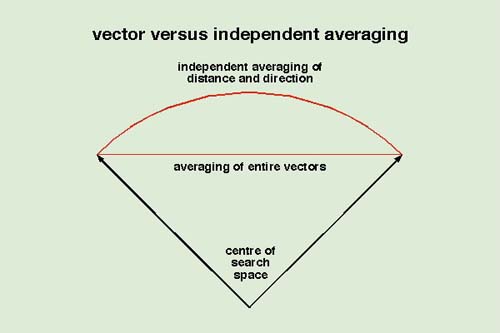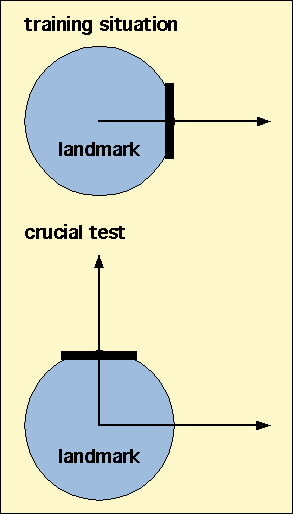Cheng
& Spetch Homepage
Next Section:
The use of
configurations of landmarks
__________
|
V. Pigeons compute distance and
direction independently

Suppose that arrows represent conflicting vectors dictating where
to search for a target. A weighted average of the entire vectors lies on the straight line
joining the endpoints of the arrows. Independent averaging of distance and direction separately leads to a point on the
arc joining the two endpoints, where the length of the averaged vector
stays the same.
|

In the above training situation, the end of arrow represents
a target's position. When the black bar is turned in the
crucial test, its dictate conflicts 90 degrees with
all other landmark. Results of experiments like this, favor the thesis of independent
averaging
in pigeons (Cheng, 1994) and honeybees (Cheng, 1998).
|
|
Independent averaging suggests separate modular systems, one devoted
to analyzing distance from a landmark, and another devoted to analyzing
direction from a landmark. Separate systems make functional sense when
the cues relied on by each system are different, and the tasks can be done
separately without compromising the overall goal. Modular functional architecture
has the ‘evolutionary advantage' in that each system can be ‘separately
tuned' to do its task better and better without compromising the performance
of another system.
Next Section: The use of
configurations of landmarks
|

